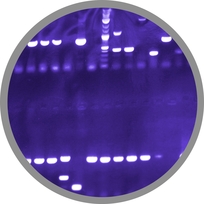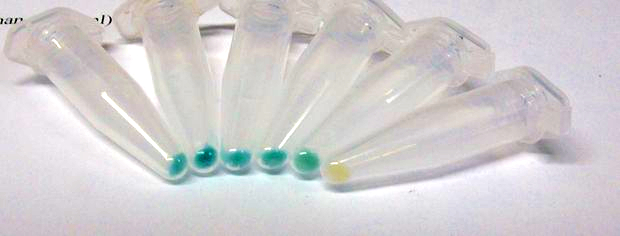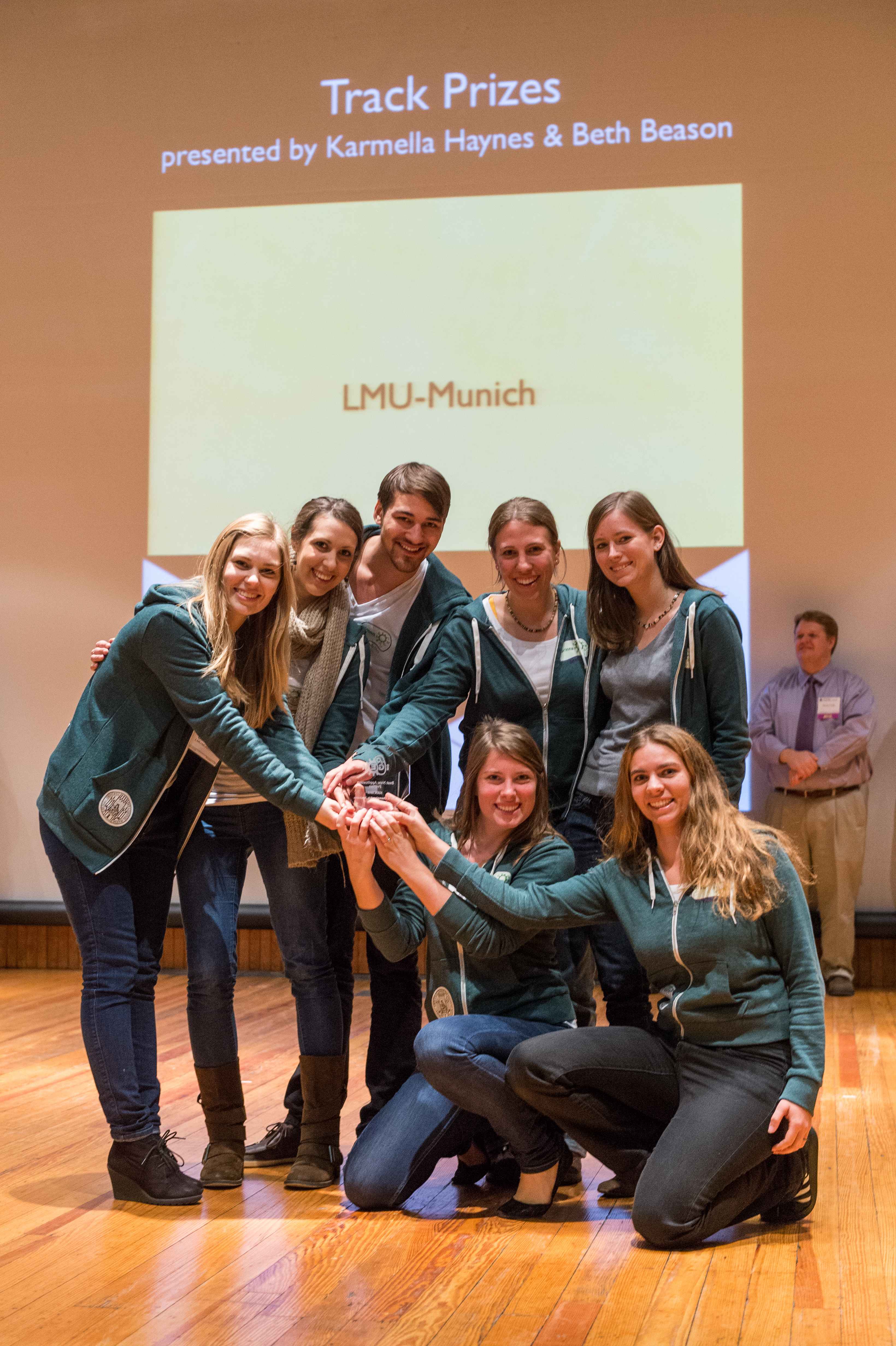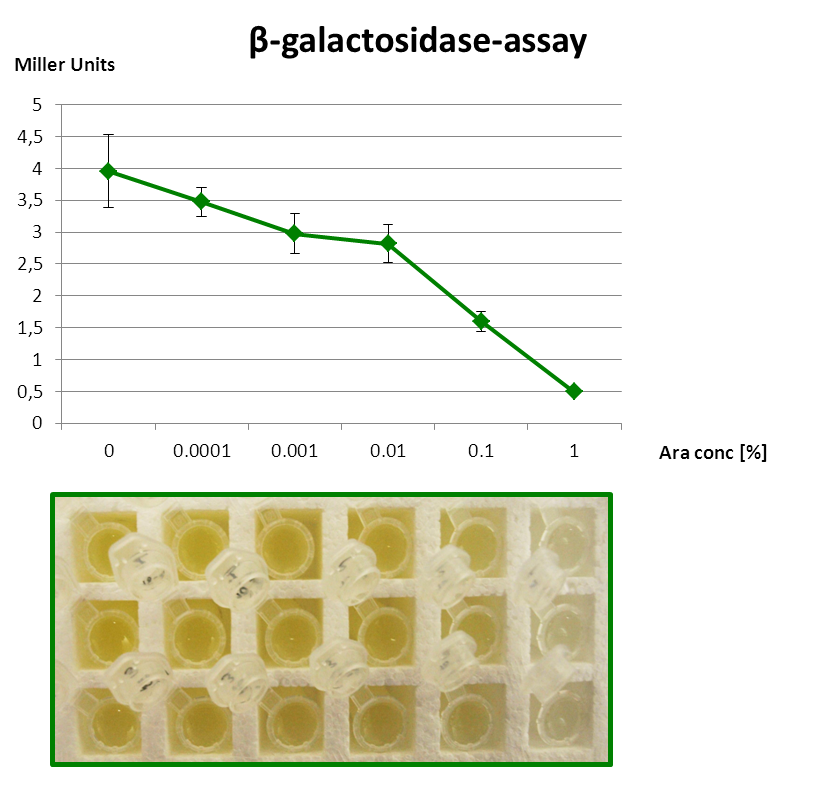Team:LMU-Munich/Inverter

The LMU-Munich team is exuberantly happy about the great success at the World Championship Jamboree in Boston. Our project Beadzillus finished 4th and won the prize for the "Best Wiki" (with Slovenia) and "Best New Application Project".
[ more news ]


Inverter
The LMU-Munich 2011 Team started a project to convert a positive input signal into a negative output or a negative input signal into a positive output.
Last year LMU-Munich designed a metal-sensing device. However, it turned out that some of the promoters that respond to metal ions are negativly regulated. So there was a need of an inverter, a genetic part that converts the repression of the metal sensing promoter in a positive output.
Since such a genetic part would be a very beneficial tool, Julia, who also participated in iGEM 2011, continued the work from last year and got some great results.
- To get an explanation how it works and see the results: Data and Results
- How to compose your individual Inverter, over Fusions PCRs and 3a assemblies is explained here: Construct your own Inverter
Theory and Results
The [http://partsregistry.org/wiki/index.php?title=Part:BBa_K823040 Inverter] is composed of the promoter one wants to invert, in this proof of principle case PBAD (PCR of [http://partsregistry.org/Part:BBa_I0500 BBa_I0500]), which is induced by arabinose, which regulates the small RNA RyhB (PCR of pURyhB) ([http://www.ncbi.nlm.nih.gov/pmc/articles/PMC1852835/ Vecerek B., Bläsi U., 2007]). RyhB itself translationally inhibits uofCGU (upstream of fur) (PCR of pRuofCGU-lacZ) ([http://www.ncbi.nlm.nih.gov/pmc/articles/PMC1852835/ Vecerek B., Bläsi U., 2007]) by binding and masking the Shine Dalgarno sequence. If this is translationally fused to a reporter, in this case lacZalpha (PCR from pRuofCGU-lacZ from [http://www.ncbi.nlm.nih.gov/pmc/articles/PMC1852835/ Vecerek B., Bläsi U., 2007]), this too is translationally repressed. The repression of the reporter is dependent on the concentration of RyhB, and therefore the Induction of the pBAD promoter. The Induction of the pBAD promoter is inverted to a negative output of the reporter.
The ONPG assay below shows the function of this Inverter. The Signal of the lacZalpha is so low, as the pBAD promoter lacks the repressor binding sites, and is therefore quite leaky, which makes it less titratable. But as this peticuliar Inverter is just a proof of principle, it is not essential. The Inverter for the wanted Promoter and Output has to be constructed by FusionsPCR.
Construct your own Inverter
1. Primer design:
- Promoter (which you would like to invert): BB-suffix + Promoter primer forward (a), GTCTTCCTGATCGCGAGACA + Promoter reverse primer from -10 (b)
- RyhB: TGTCTCGCGATCAGGAAGAC (RyhB fwd) (c), BB-suffix + AAAGCCAGCACCCGGCTGGCTAAG (RyhB rev) (d)
- uof: BB-prefix + GTGGTTTTCATTTAGGCGTG (Uof fwd) (e), Output/Reporter forward primer + GTTATCAGTCATGCGGAATC (uof rev) (f)
- Output/Reporter: Forward primer without BB-prefix (g), Reverse primer with BB-suffix (h)
2. PCRs and Fusion PCRs:
- basic PCRs: Promoter (a+b), RyhB (c+d), uof (e+f), Output/Reporter (g+h)
- Fusion PCRs: ~ 200 ng equimolar with forward primer of the front and reverse primer of the back fusion part: to be inversed promoter to RyhB (a+d) and uof to Output/Reporter (e+h)
3. Bring these into BioBrick vectors to facilitate 3a assemblies
4. 3a assemblies
- 3a assembly of Output/Reporter with a constitutive/inducible promoter like [http://partsregistry.org/Part:BBa_R0011 BBa_R0011]
- 3a assembly of promoter + RyhB with product of step above
 "
"






